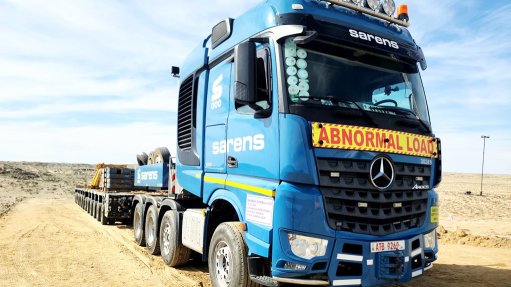Dangerous demagoguery
Kenyans are due to elect a new Parliament and a new President only in August 2022, but the frenetic itinerary of Deputy President William Ruto – who has made no bones about his intention to take a stab at the top job – would fool observers who are not familiar with the country’s electoral calendar into believing that voting will take place in a few months, if not weeks.
In recent elections, voting in Kenya has palpably been along ethnic lines. As none of the major tribes – Kikuyu, Luhya, Kalenjin, Luo and Kamba – is big enough to provide the 50% of votes required for a candidate to become President, tribal coalitions have become the order of the day. The current President, Uhuru Kenyatta, is a Kikuyu, while Ruto, his number two since 2012, is a Kalenjin.
But if Ruto has his way, the 2022 elections will be different from previous ones in that they will have class overtones, as opposed to tribal ones. Since he started hitting the campaign trail hard last year, he has been pushing the narrative that Kenya is a nation of hustlers, a reference to massive unemployment – especially among the youth – and high levels of poverty. Shrewdly, Ruto has positioned himself as a hustler and has, in recent months, resorted to what Kenyan economist David Ndii has termed ‘wheelbarrownomics’. This is the large-scale donation of wheelbarrows and pushcarts, which cost 4 000 shillings and 20 000 shillings respectively, to unemployed youngsters, who use them to hawk their wares in the ghettos of Nairobi and other urban centres.
Ruto has gone as far as billing the 2022 elections as a “hustlers-versus-dynasties” affair. One interpretation is that this is a suggestion that the careers of key political figures like Kenyatta and former Prime Minister Raila Odinga were aided by their being the scions of Kenya’s founding father and a one-time Vice President respectively. While Kenyatta will not run in the next elections, as he will have completed two constitutionally permissible terms, Odinga has indicated, if not categorically, that he will make yet another attempt to take the top job. So, harping on about a “hustlers-versus-dynasties” election appears to be appealing to Kenyans to vote for him instead of Odinga. In other words, the narrative sets the hungry Kenyan underclass against attempts by Kenyatta and Odinga, who were once bitter rivals but are now allies, to monopolise State power and economic opportunities.
Other commentators have pointed out that, since Ruto does not clearly define who falls under the ‘dynasties’ banner, Kenyans who are struggling to earn a living might be tempted to harden their attitudes towards their fellow citizens who may be more fortunate than they are.
This could culminate in “class warfare”, they argue. Indeed, violent class struggles have occurred in many places across the globe, examples being the French Revolution of the 1790s, the Russian Revolution of 1917 and the mass killings of landlords in China from 1946 to 1948. It has also been argued that the genocidal wave that swept Rwanda in 1994 could be classified as class warfare interlaced with an ethnic dimension in that the Hutus sought to deliver to the Tutsis comeuppance for the historical favouritism shown the Tutsis by the country’s one-time colonial masters.
Ruto is correct in trying to eliminate the ethnic dimension from Kenyan politics. But the alternative he is offering should be resisted. Indeed, if one scratches a little bit, one will find that the Deputy President’s campaign is not a class struggle at all; it is a struggle for power for himself. This is classic demagoguery, which involves telling the masses what they want to hear, with a view to driving a wedge between the masses and a perceived elite to the demagogue’s political advantage.
Article Enquiry
Email Article
Save Article
Feedback
To advertise email advertising@creamermedia.co.za or click here
Announcements
What's On
Subscribe to improve your user experience...
Option 1 (equivalent of R125 a month):
Receive a weekly copy of Creamer Media's Engineering News & Mining Weekly magazine
(print copy for those in South Africa and e-magazine for those outside of South Africa)
Receive daily email newsletters
Access to full search results
Access archive of magazine back copies
Access to Projects in Progress
Access to ONE Research Report of your choice in PDF format
Option 2 (equivalent of R375 a month):
All benefits from Option 1
PLUS
Access to Creamer Media's Research Channel Africa for ALL Research Reports, in PDF format, on various industrial and mining sectors
including Electricity; Water; Energy Transition; Hydrogen; Roads, Rail and Ports; Coal; Gold; Platinum; Battery Metals; etc.
Already a subscriber?
Forgotten your password?
Receive weekly copy of Creamer Media's Engineering News & Mining Weekly magazine (print copy for those in South Africa and e-magazine for those outside of South Africa)
➕
Recieve daily email newsletters
➕
Access to full search results
➕
Access archive of magazine back copies
➕
Access to Projects in Progress
➕
Access to ONE Research Report of your choice in PDF format
RESEARCH CHANNEL AFRICA
R4500 (equivalent of R375 a month)
SUBSCRIBEAll benefits from Option 1
➕
Access to Creamer Media's Research Channel Africa for ALL Research Reports on various industrial and mining sectors, in PDF format, including on:
Electricity
➕
Water
➕
Energy Transition
➕
Hydrogen
➕
Roads, Rail and Ports
➕
Coal
➕
Gold
➕
Platinum
➕
Battery Metals
➕
etc.
Receive all benefits from Option 1 or Option 2 delivered to numerous people at your company
➕
Multiple User names and Passwords for simultaneous log-ins
➕
Intranet integration access to all in your organisation

















